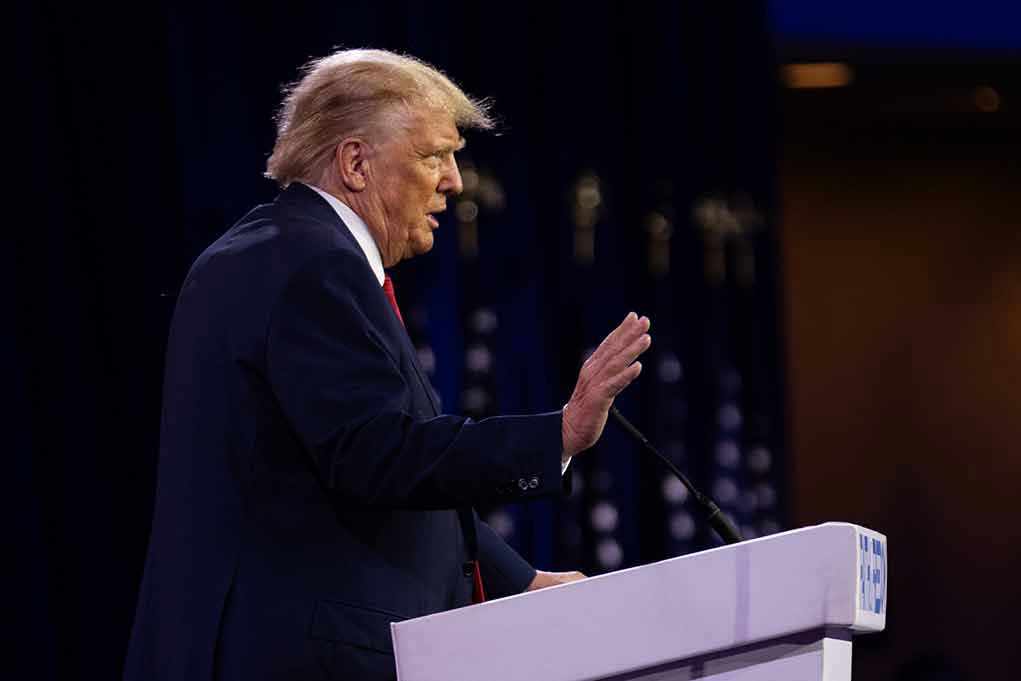
Donald Trump’s recent AI-generated video mocking Democratic leaders has ignited a firestorm of controversy, illustrating the potent and perilous mix of technology, politics, and racial provocation.
Story Highlights
- Trump’s AI video used racial stereotypes, provoking bipartisan condemnation.
- The incident underscores the ethical risks of AI in political discourse.
- Democrats demand accountability, Republicans offer mixed reactions.
- The episode raises questions about the normalization of digital disinformation.
AI and Political Mockery
Donald Trump posted an AI-generated deepfake video on his social media platforms, targeting Democratic figures Hakeem Jeffries and Chuck Schumer. The video used offensive cultural tropes, including a sombrero and exaggerated mustache on Jeffries and a fake audio track of Schumer, mocking their stance on healthcare for undocumented immigrants. Released during critical government shutdown negotiations, the video was condemned as racist and politically reckless by Democratic leaders and some Republicans.
Trump’s decision to release a second AI video mocking Jeffries’ condemnation further inflamed tensions. The incident highlights the growing role of generative AI in political mudslinging, raising ethical concerns about the weaponization of such technology in digital campaigning. This use of AI not only amplifies disinformation but also normalizes racial provocation in political discourse.
Bipartisan Reactions and Media Coverage
The backlash against the video was swift and widespread. Jeffries labeled it “racist and fake,” demanding Trump address him directly. Schumer dismissed it as a distraction from serious negotiation efforts. Some Republicans, like House Speaker Mike Johnson, downplayed the video as a “joke,” illustrating the divided response within the party.
Media outlets and civil society organizations have amplified the story, highlighting the ethical and political risks of AI-generated disinformation. Experts warn that such incidents risk undermining democratic norms and public trust, as the sophistication of AI content creation continues to escalate.
Trump mocks Jeffries with new AI video after Democrats deem first as racist – The Hill https://t.co/QCsldslGl8
— O (@O19928734) October 1, 2025
Historical Context and Implications
Trump’s history of racially inflammatory rhetoric sets a precedent for this incident. His previous remarks and digital campaigning strategies have often incited racial tensions. The advancement of AI tools has only lowered the barrier for creating convincing deepfakes, posing new challenges for political communication and ethical standards.
The incident occurred amid negotiations to avoid a government shutdown, a period when bipartisan cooperation is crucial. The release of racially charged content during such a critical moment was seen as a deliberate distraction, undermining Democratic leadership and legislative priorities.
Future Considerations and Expert Opinions
The incident’s short-term implications include increased political polarization and heightened racial tensions. Long-term, it could normalize AI-generated disinformation in campaigns, eroding public trust in digital media. Experts like Peter Loge from George Washington University and Democratic Representative Grace Meng have condemned the video, emphasizing its racist undertones and the irresponsible use of digital tools by the president.
The tech industry may face increased scrutiny over AI tools that enable deepfake creation, while media outlets emphasize fact-checking and ethical reporting standards. Political campaigns could see an escalation in AI usage for attack ads, raising the stakes for digital campaign practices and regulatory responses.

